When the COVID-19 pandemic began, people were given stay-at-home orders. To cope with the loneliness, many Americans adopted a pet.
However, as COVID-19 restrictions were lifted and online work became restricted, some pets were returned back to shelters, leading to high intakes.
Why It’s Newsworthy: As people returned back to work, animal shelters across the United States have reported overcrowding. Depending on the type of shelter, it can lead to more money needed to care for the influx of animals, and as a last result, euthanasia. In one of Athens-Clarke County’s shelters, this is reality.
Shelters across the nation have reported return of pets purchased during the stay-at-home order mainly due to inflation increasing costs of pet ownership. This has affected the number of intakes in Athens’ largest animal shelters: Athens-Clarke County Animal Services and Athens Area Humane Society (AAHS).
With the partnership the shelters have with each other to maintain consistent intake levels, animals have been euthanized. But, the shelters do not operate the same regarding euthanasia.
AAHS is a non-profit organization in Watkinsville that offers pet adoptions, spay/neuter services, and a foster program for animals. The organization is made up of staff and volunteers who aid in these programs. It was founded in 1989 and is the county’s oldest animal shelter.
With its status as a non-profit, AAHS recognizes itself as a non-kill shelter, meaning it does not euthanize its animals. Athens-Clarke County Animal Services does perform euthanasia, but only as a last resort.
Additionally, both shelters have different definitions of what they consider to be overcrowding.
Two Different Reports of Overcrowding
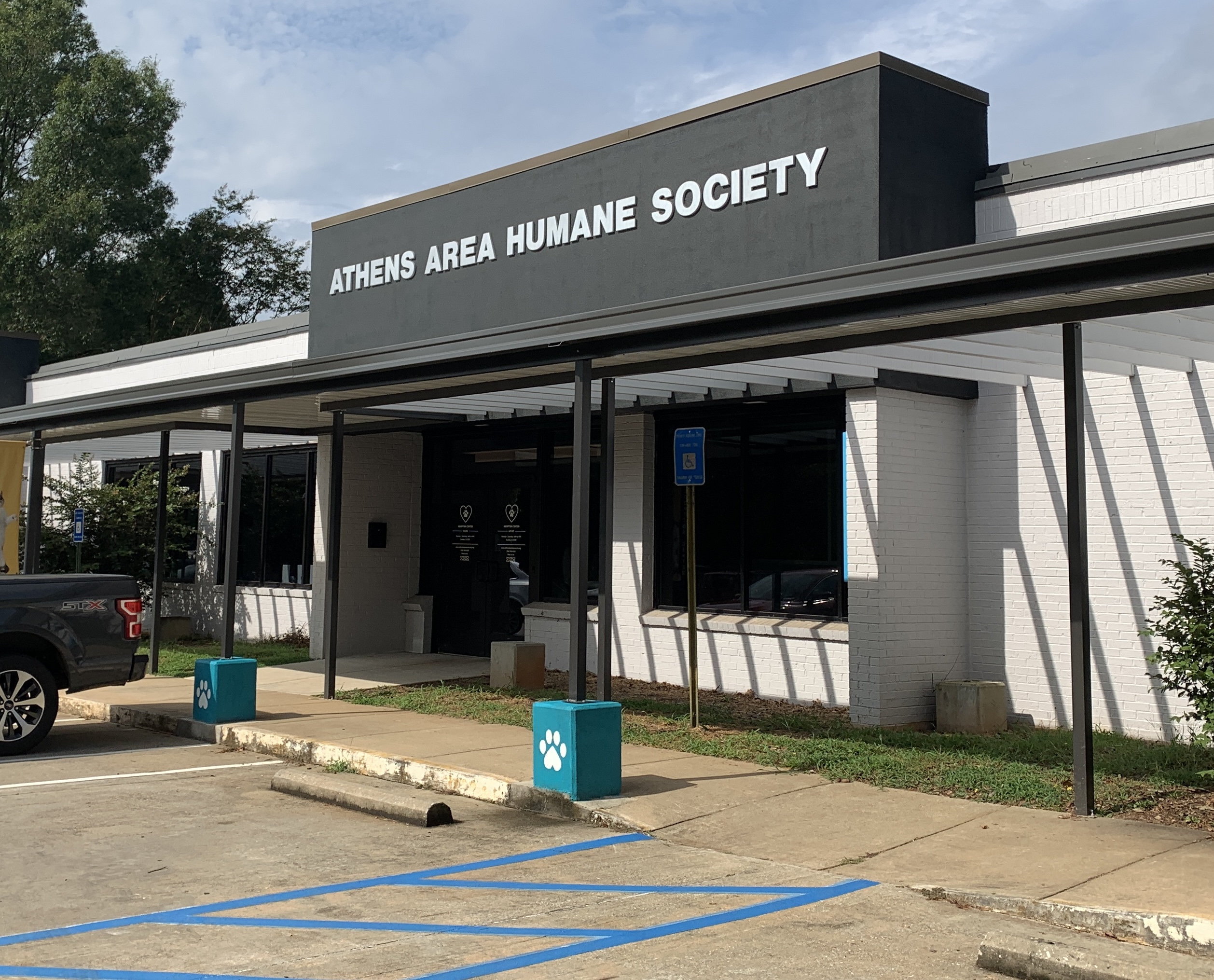
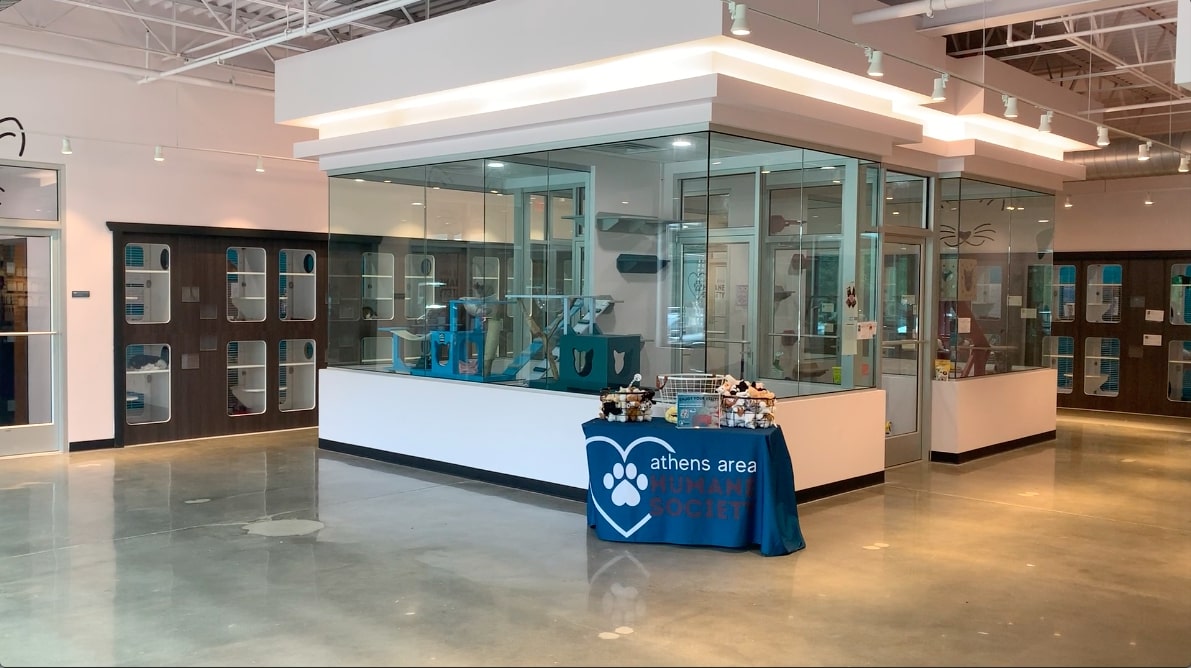
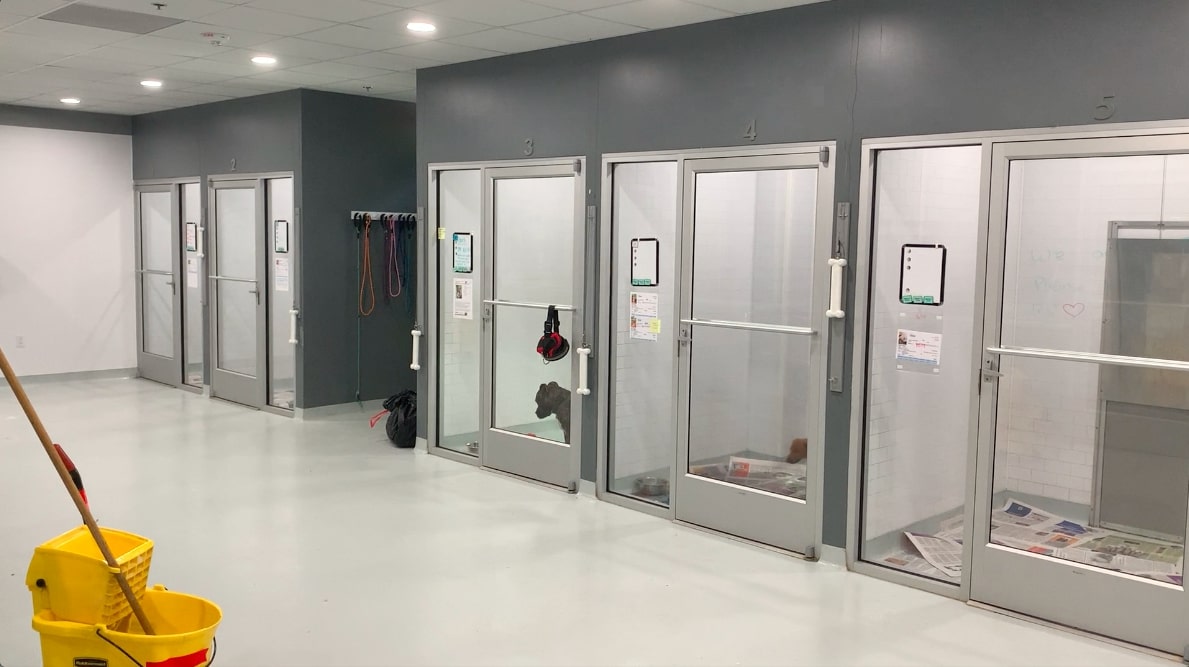
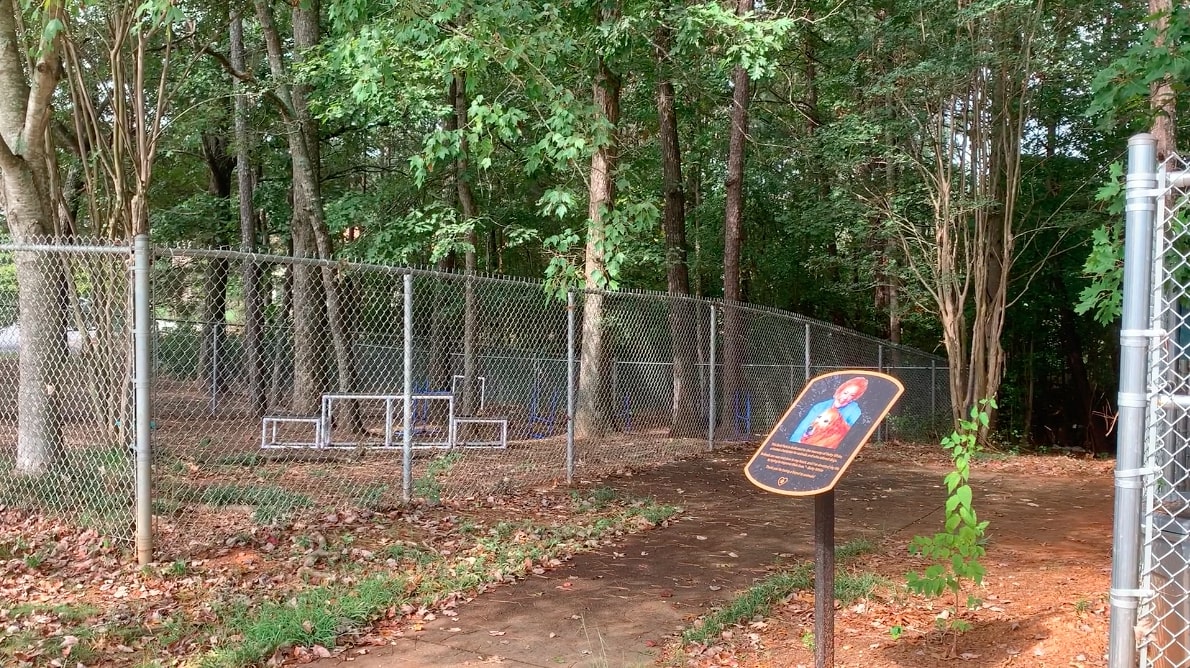
The first recent instance of overcrowding was reported by The Red & Black in July 2021, but it looked like AAHS was able to address this issue.
Nearly two years later though, these reports have popped up again. However, for AAHS, this is not what is happening.
When asked if it was concerned about overcrowding, Program Director Jed Kaylor said this is not a black-and-white issue.
Kaylor has been program director for AAHS since August 2020. He has been with the organization since August 2014, first serving as its shelter director. Due to the length of his time at AAHS, Kaylor has numerous first-hand experiences with shelter operations.
Kaylor said organizations have different definitions for overcrowding. For AAHS, there is a distinction between high intakes and overcrowding. High intakes are when an organization receives a large number of animals at a certain time, such as a large influx of kittens during kitten season, or a large number of pets being returned at a time.
Overcrowding is when the high intakes inhibit the personal space of the animals, resulting in the need to stop intakes.
For example, if there were three dogs in a pen at a time rather than a single dog in a pen. Animal shelters can have high intakes without it leading to overcrowding, usually if there is a flow of animals being adopted or put through foster care.
What AAHS has experienced is some periods of high intakes, but not any overcrowding. This is because AAHS is able to choose what animals it is allowed to take in since it is not a government organization.
As a result, AAHS has been able to manage its population of cats and dogs in the shelter at a time.
Unfortunately, it is a trade-off because if shelters cannot take in every animal, it can lead to euthanasia at other shelters.
“Our pets can sit here, for however long they would like to, and they would never be at risk for euthanasia, because we care for them that long. So we certainly have the luxury of choosing what we care for, with the space that we have. And we could sit on them all day, and all month long if we wanted to,” Kaylor said. “But since we can’t do that, because, you know, the fallback to that is we’re not taking more animals from animal control at a consistent pace, then that backs them up and causes a backlog.”
Athens-Clarke County Animal Services
Comparatively, staff at Athens-Clarke County Animal Services are more worried about overcrowding. Formerly known as Athens-Clarke County Animal Control, it is the county’s shelter responsible for animal adoptions and responding to calls about animal welfare.
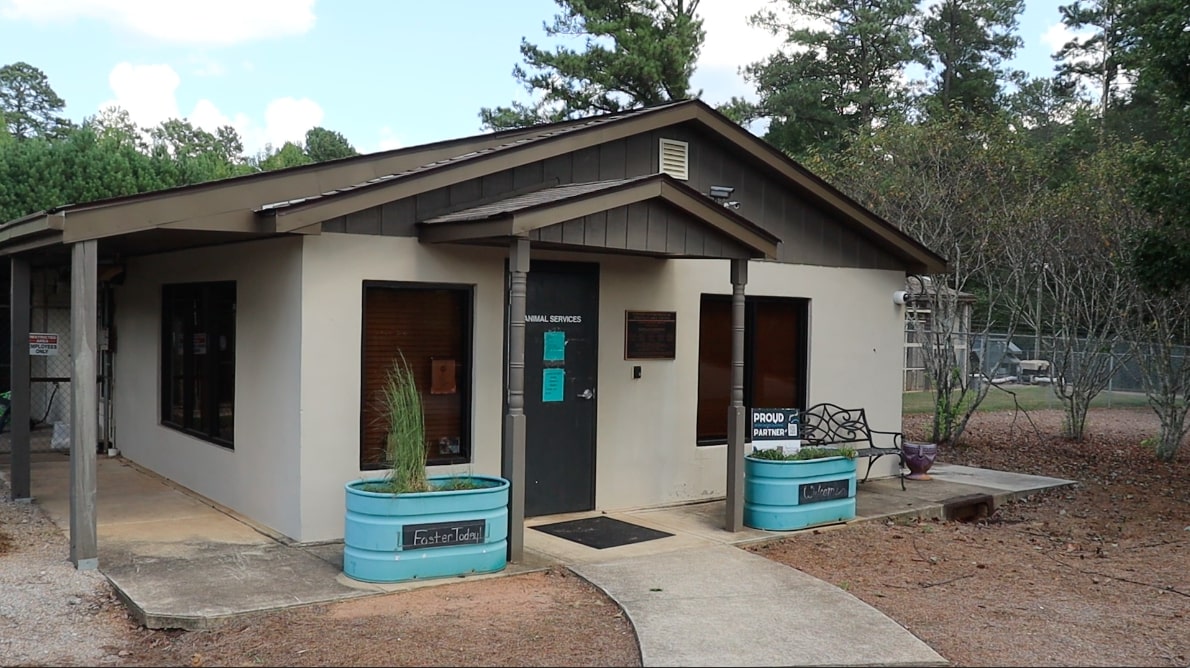
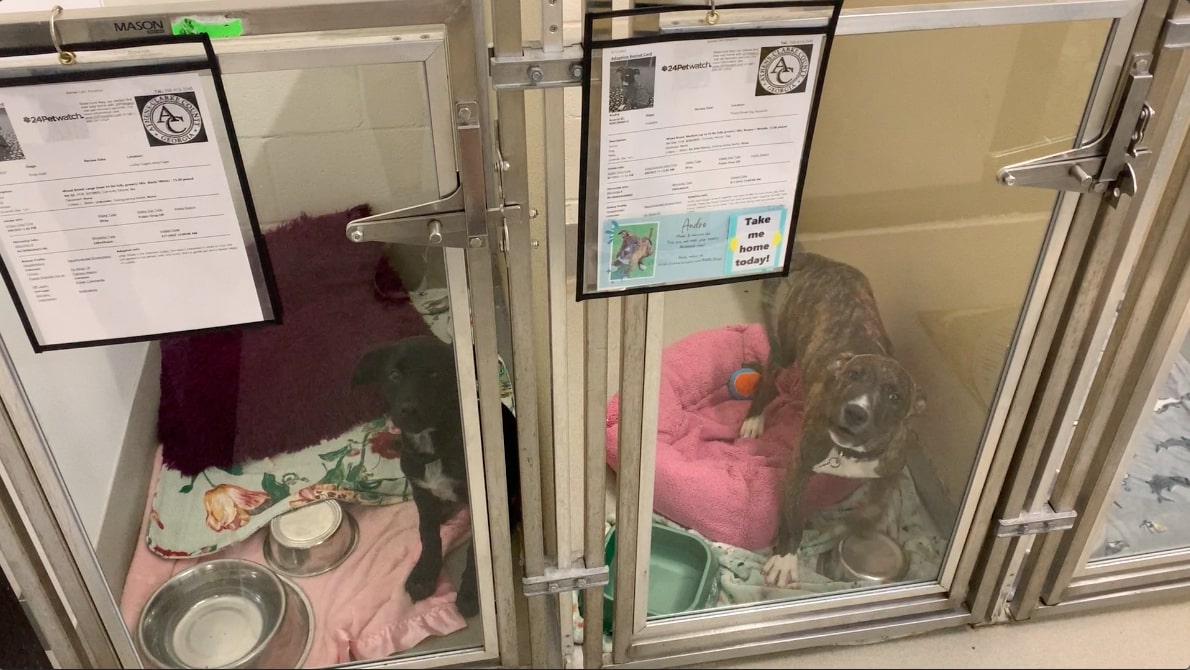
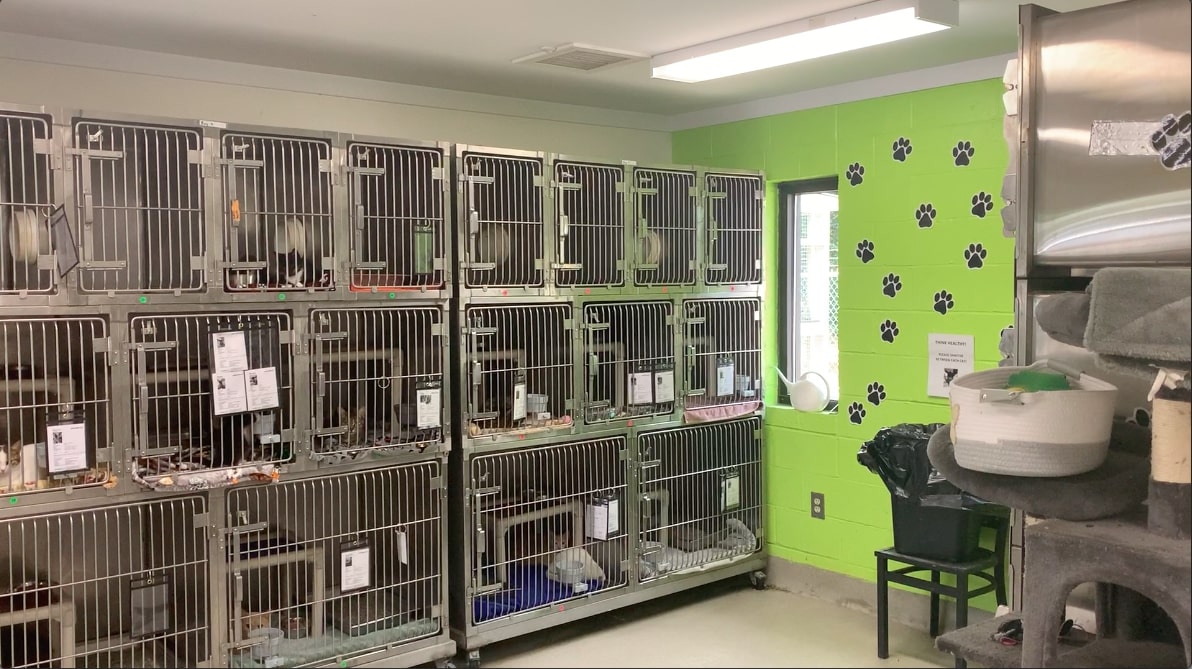
Kristall Barber became director of Animal Services in February 2020, right during the beginning of the COVID-19 pandemic. When pandemic restrictions were implemented, Barber was stuck in an Airbnb for 45 days before being allowed back to Animal Services with protection programs implemented. These included adoption appointments, dog meet-and-greets in the play yard, and open patios for cats.
“Because we’re government and because we have a lot of people that come through our offices, governmental offices, we stayed close to the public a lot longer,” Barber said. “We did things by appointments a lot,”
However, because of how small the shelter is, it was difficult to connect with the staff. In order to protect its staff from getting sick, shifts were broken up.
“So it was getting to know your entire staff with only seeing half of them because we were on split shift and we weren’t commingling in case a shift came down six. So there were a couple of things that I did as a kind of icebreaker,” Barber said. “Like, I would leave questions on the wall on a piece of paper, like, ‘What was your favorite movie?’ ‘What’s your favorite color?’ ‘What are your dog’s names?’ ‘Do you have any kids?’ to try to get to know my employees while also quarantined.”
Responses to Overcrowding
Animal Services had its doors closed for 18 months before it was allowed to fully open back up to the public. As restrictions were lifted, Barber noted there were positives during the pandemic. The foster program increased, volunteer information was updated, and online adoption appointments were made a full part of the county shelter.
While there were positives, the biggest negative was increasing number of returns. According to Barber, the reasons for these returns include people not realizing they could not adopt a dog, as well as landlords that do not allow pets.
“Returns are just nonsense, like they’ve had it for 24 hours, you know, they didn’t realize they couldn’t have a dog, that’s probably something you probably need to check out before you go to a shelter to adopt a dog. You know, it’s really silly like that,” Barber said. “And then, you know, some of them are, you know, they’re not working out, or they realize they don’t have enough time to, or it’s just not a good match. So, some of them definitely are more frustrating than others.”
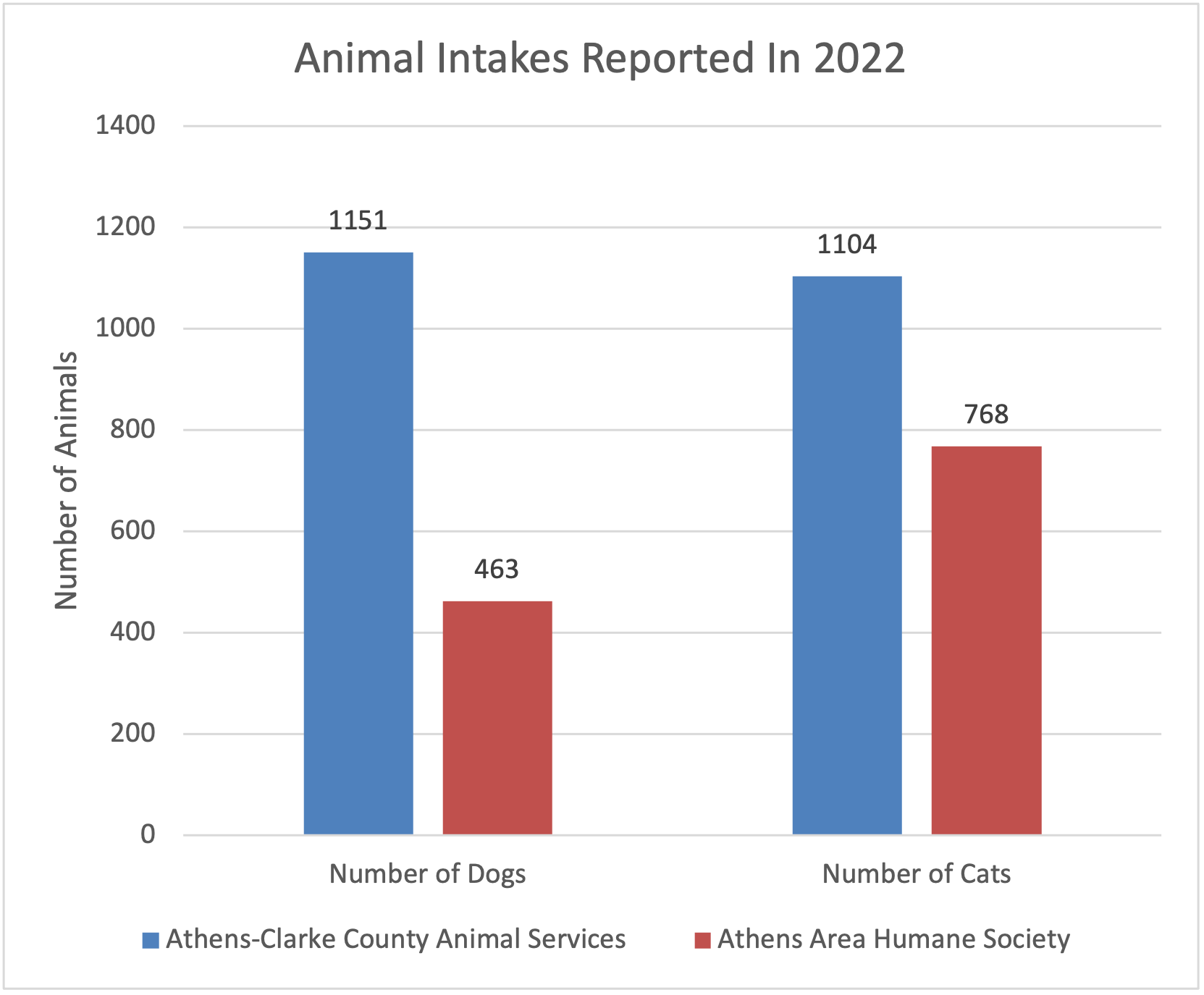
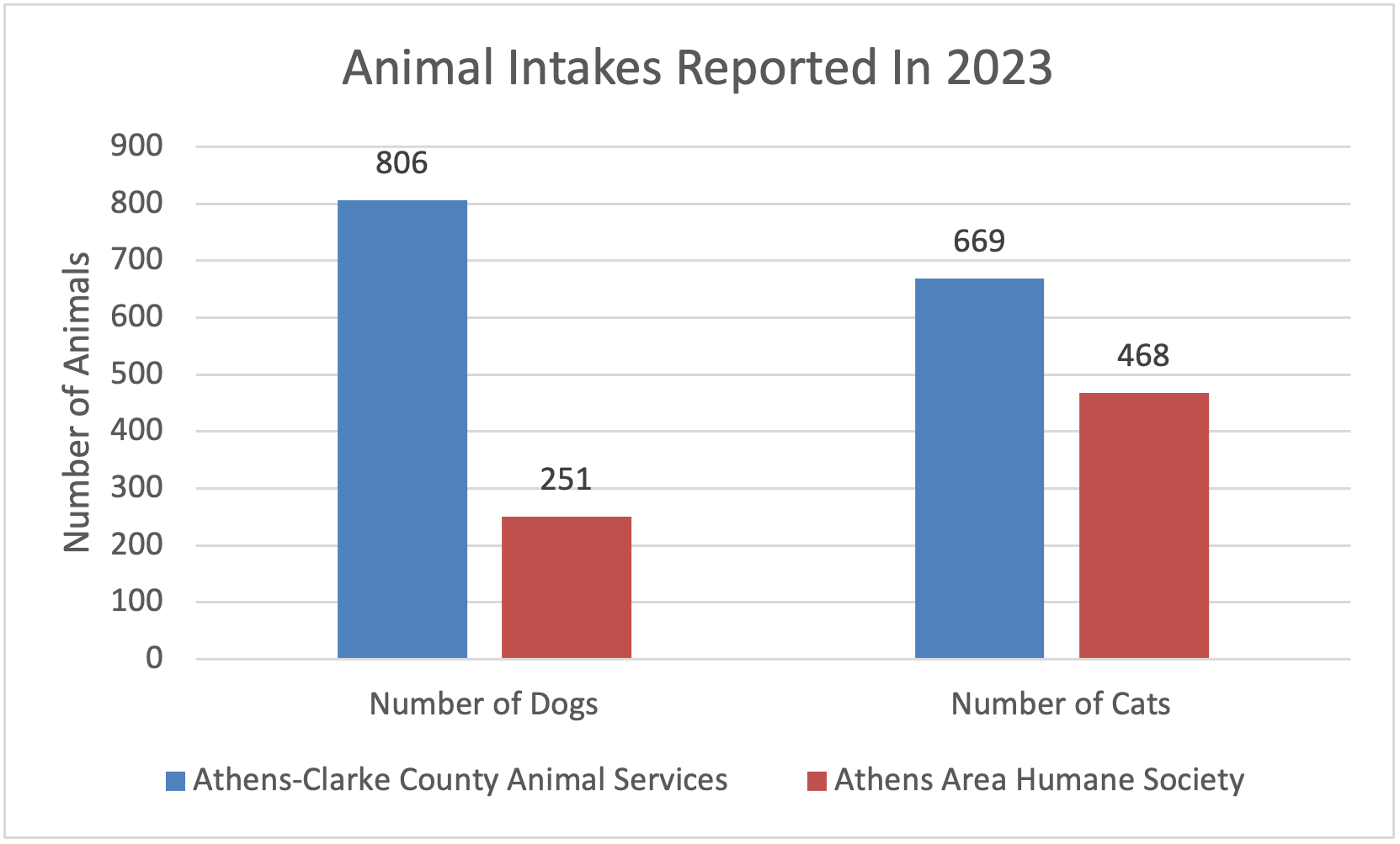
As a result of the returns, Animal Services needed to euthanize a small number of its animals. The animals that were euthanized were canines, with 96 cases of canine euthanasia reported this year according to Georgia Department of Agriculture Shelter Data.
“They’re never pleasant, no one ever likes them, especially the people doing them,” Barber said. “But we are really getting to the point where we’re really nitpicking about behaviors, and it’s almost to the point where we’re doing time and space.”
Euthanasia is a last decision and is usually decided by behavior or medical issues.
When people realize animals are about to be euthanized, it leads to them fostering the animal in order to help it live a longer life. However, Barber said this is also an issue because it’s more out of a panic, and they realize they aren’t ready for that commitment, so returns increase in that aspect as well.
Solutions to Overcrowding
There are a number of solutions that can be done to reduce overcrowding. The first step is to spay or neuter your pet.
Additionally, it is important to get them microchipped so they can return your pet to you in a timely fashion. Lost pets sometimes end up in shelters, places where some owners don’t check to find their missing pets. If information in the microchip is updated, then it allows people to find your pet as quickly as possible.
As for adoption, Barber said if you want to adopt a pet, make sure you are able to commit before deciding to adopt.
Finally, both Barber and Kaylor said that if you aren’t able to adopt, join the foster program or volunteer at a shelter.
“At the end of the day, the number one thing that gets affected is the animal right, in any of those relationships. So that’s why I always say, our first customer is to the animal, and our second customer is the person,” Barber said.
To volunteer at Athens Area Humane Society, you can visit their website here. They are open from 9 a.m. to 6 p.m. Mondays through Saturdays, and are closed on Sundays. To volunteer at Athens-Clarke County Animal Services, you can visit their website here. Volunteer shifts are between 9 a.m. to 4 p.m. every day, and the adoption center is open from 11 a.m. to 4 p.m. every day.
Chris Darnell is a fifth-year student majoring in journalism and minoring in sport management.


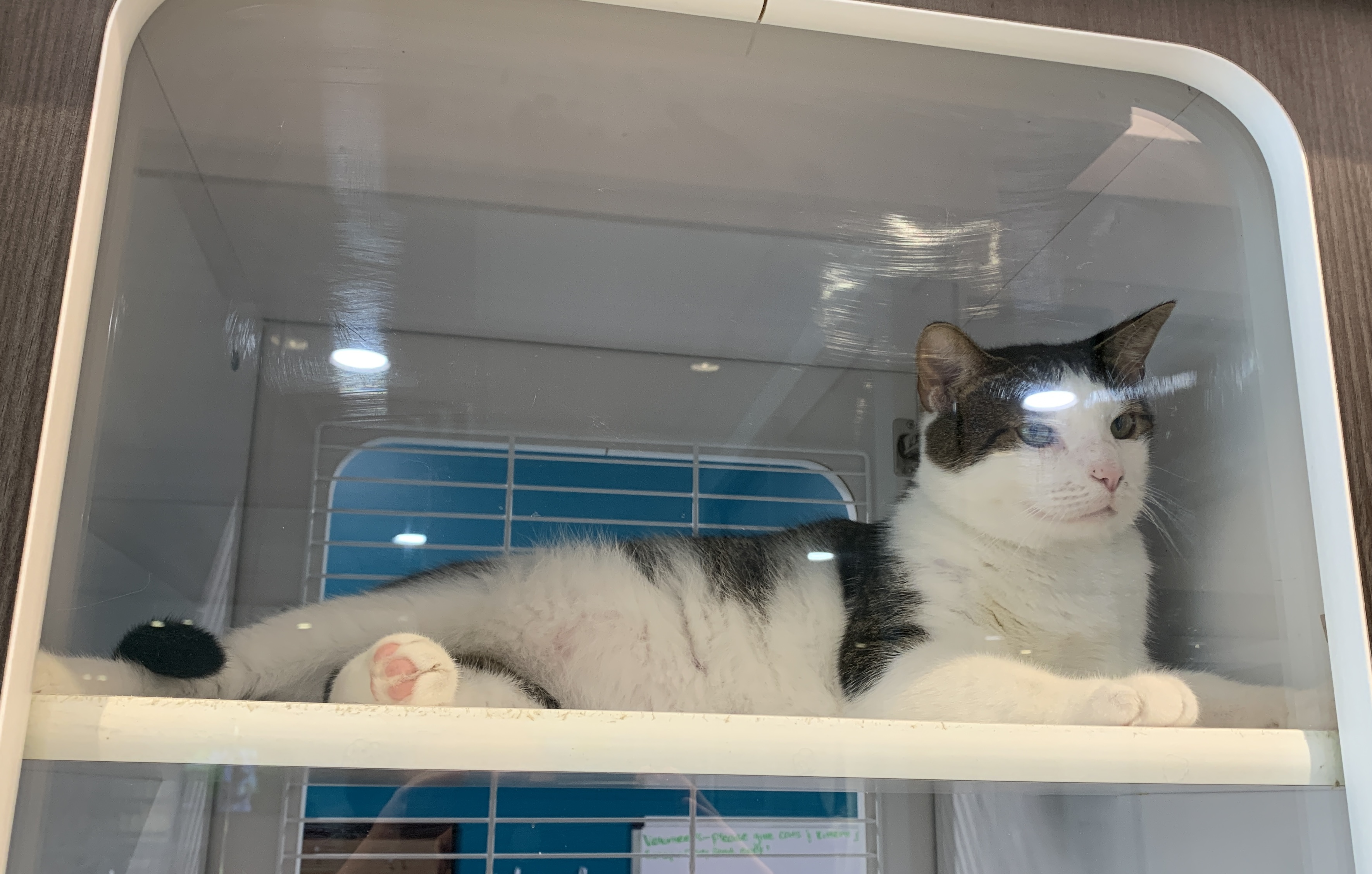






Show Comments (2)